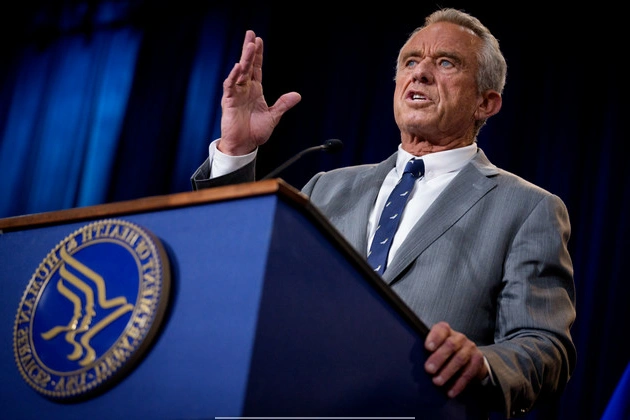
HHS Secretary Robert F. Kennedy Jr. criticized major medical journals for publishing studies funded by pharmaceutical companies on a podcast, escalating his war on institutions he perceives as influenced by drug manufacturers.
Controversy Surrounding Medical Journals
In a recent podcast, Kennedy labeled the New England Journal of Medicine, the Journal of the American Medical Association, and The Lancet as ‘corrupt,’ accusing them of publishing biased studies.
He threatened to prevent NIH scientists from publishing in these journals and proposed creating in-house publications to counter them.
Impact of Pharmaceutical Influence
The White House report, led by Kennedy, highlights concerns about overprescribed medications contributing to a rise in chronic diseases among children.
It suggests that pharmaceutical industry influence and a culture of fear deter doctors and scientists from investigating chronic disease causes.
Conflicting Views within NIH
Kennedy’s stance contrasts with NIH director Jay Bhattacharya’s support for academic freedom, emphasizing the importance of independent research.
Challenges Faced by Leading Journals
Kennedy cited statements from journal heads, including concerns raised by The Lancet’s Richard Horton and NEJM’s Marcia Angell about the credibility of clinical research due to financial ties.
Criticism Amid Covid-19 Pandemic
Kennedy criticized Horton’s handling of the Covid-19 pandemic, referencing a retracted study on hydroxychloroquine and debates about the virus’s origin.
Evolving Responses
Despite criticism, journals like JAMA and NEJM remained silent on Kennedy’s remarks. Bhattacharya and FDA chief Marty Makary launched the Journal of the Academy of Public Health to encourage open discourse.











